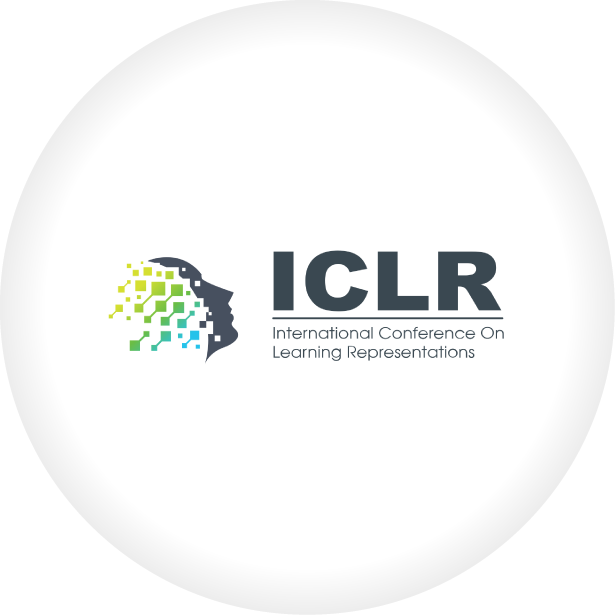
ICLR 2025 Takeaways
From a Regional to a Global Perspective on Embodied AI for HKU IDS Students
Authors: Pei Zhou, Ruizhe Liu, Qian Luo, Fan Wang, Yibing Song, Yanchao Yang

Authors: Pei Zhou, Ruizhe Liu, Qian Luo, Fan Wang, Yibing Song, Yanchao Yang

Mr. Ruizhe LIU
First-Year PhD Candidate, HKU IDS
Q
How was your experience at ICLR 2025, Ruizhe?
A
As a PhD student from HKU IDS, attending ICLR 2025 in Singapore from April 24–28 with my peers was thrilling and truly rewarding. I engaged in valuable discussions on representation learning for robotics, which significantly influenced my future research direction. These conversations revealed the potential for enhancing current representation learning approaches by integrating symbolic learning with parameter learning, a hybrid methodology that could address some of the fundamental limitations in current AI systems. The conference presentations and workshops highlighted how symbolic reasoning can provide interpretability and logical structure to neural representations, while maintaining the flexibility and adaptability that parameter learning offers.
Q
What stood out in the discussions at the conference? Did you enjoy the sessions or how did the talks enlighten you to develop your research in Embodied AI even further?
A
Embodied AI was a hot topic, with the 7th Robot Learning Workshop diving into generalist policies for humanoids. I am truly pleased that I could be part of the community. The technical sessions were particularly illuminating, as researchers presented cutting-edge work on multimodal learning, foundation models for robotics, and emergent behaviors in artificial systems. These discussions helped me understand how different learning paradigms can be synergistically combined to create more robust and generalizable AI systems. The insights gained from these sessions directly inform my thesis research, particularly in developing architectures that can learn both implicit patterns and explicit rules.

Mr. Ruizhe LIU
First-Year PhD Candidate, HKU IDS
Q
How was your experience at ICLR 2025, Ruizhe?
A
As a PhD student from HKU IDS, attending ICLR 2025 in Singapore from April 24–28 with my peers was thrilling and truly rewarding. I engaged in valuable discussions on representation learning for robotics, which significantly influenced my future research direction. These conversations revealed the potential for enhancing current representation learning approaches by integrating symbolic learning with parameter learning, a hybrid methodology that could address some of the fundamental limitations in current AI systems. The conference presentations and workshops highlighted how symbolic reasoning can provide interpretability and logical structure to neural representations, while maintaining the flexibility and adaptability that parameter learning offers.
Q
What stood out in the discussions at the conference? Did you enjoy the sessions or how did the talks enlighten you to develop your research in Embodied AI even further?
A
Embodied AI was a hot topic, with the 7th Robot Learning Workshop diving into generalist policies for humanoids. I am truly pleased that I could be part of the community. The technical sessions were particularly illuminating, as researchers presented cutting-edge work on multimodal learning, foundation models for robotics, and emergent behaviors in artificial systems. These discussions helped me understand how different learning paradigms can be synergistically combined to create more robust and generalizable AI systems. The insights gained from these sessions directly inform my thesis research, particularly in developing architectures that can learn both implicit patterns and explicit rules.
Q
Sounds really insightful! You told me that there were opportunities for you to interact with interdisciplinary industrial experts working on AI and various fields. Could you talk a little bit more?
A
Beyond the technical content, I had the opportunity to connect with leading experts from academia and industry across diverse fields including AI, computer science, and finance. These networking opportunities proved invaluable, as they provided access to different perspectives on how AI research translates into practical applications. Industry practitioners shared insights about real-world deployment challenges, while academic researchers offered theoretical frameworks that could guide future investigations. Moreover, the interdisciplinary nature of these conversations was particularly enriching, as experts from finance discussed algorithmic trading applications, while robotics researchers explored embodied AI challenges. These interactions broadened my professional network substantially and established potential collaborations that extend beyond traditional academic boundaries.
Q
How did ICLR help shape your research?
A
The knowledge and connections gained at ICLR 2025 are directly relevant to my thesis studies and are crucial for advancing toward the realization of truly intelligent artificial systems. The conference experience has refined my research focus and provided a clearer roadmap for contributing meaningfully to the field of artificial intelligence.
Q
Any tips for future ICLR attendees?
A
Dive into poster sessions for rich feedback and join workshops for cutting-edge insights. Apply early for mentorship programs—they’re invaluable. Professor Yi Ma’s keynote was phenomenal. His insights on theoretical AI foundations and their application to embodied systems inspired me to rethink my approach to generalist policies. It was a masterclass in bridging theory and practice. Don’t you ever want to miss the interdisciplinary talks like Professor Ma’s!
Q
Sounds really insightful! You told me that there were opportunities for you to interact with interdisciplinary industrial experts working on AI and various fields. Could you talk a little bit more?
A
Beyond the technical content, I had the opportunity to connect with leading experts from academia and industry across diverse fields including AI, computer science, and finance. These networking opportunities proved invaluable, as they provided access to different perspectives on how AI research translates into practical applications. Industry practitioners shared insights about real-world deployment challenges, while academic researchers offered theoretical frameworks that could guide future investigations. Moreover, the interdisciplinary nature of these conversations was particularly enriching, as experts from finance discussed algorithmic trading applications, while robotics researchers explored embodied AI challenges. These interactions broadened my professional network substantially and established potential collaborations that extend beyond traditional academic boundaries.
Q
How did ICLR help shape your research?
A
The knowledge and connections gained at ICLR 2025 are directly relevant to my thesis studies and are crucial for advancing toward the realization of truly intelligent artificial systems. The conference experience has refined my research focus and provided a clearer roadmap for contributing meaningfully to the field of artificial intelligence.
Q
Any tips for future ICLR attendees?
A
Dive into poster sessions for rich feedback and join workshops for cutting-edge insights. Apply early for mentorship programs—they’re invaluable. Professor Yi Ma’s keynote was phenomenal. His insights on theoretical AI foundations and their application to embodied systems inspired me to rethink my approach to generalist policies. It was a masterclass in bridging theory and practice. Don’t you ever want to miss the interdisciplinary talks like Professor Ma’s!

